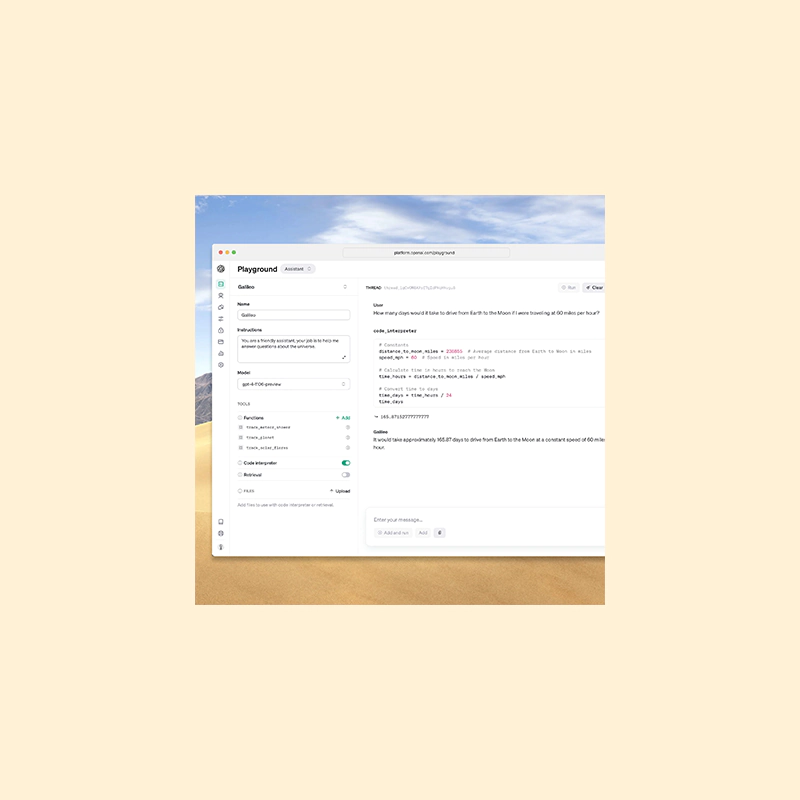
The AI was kind of boring and dull, before OpenAI came in.
Especially when it announced ChatGPT, the company quickly wowed the world with the generative AI product. And since then, the rest is history. Rivals began racing to create competing products that things become an arms race.
While there are now many alternatives, somehow, ChatGPT remains the most popular.
And this time, during its first-ever developer conference, OpenAI unveiled improvements that should make the AI product a lot useful, if not immensely powerful.
This should make ChatGPT remain a key player, leaving others playing catch up.
First of, is the introduction of GPT-4 Turbo.
The improved version of its flagship text-generating AI model, GPT-4, is claimed to be "more powerful" but less expensive.
GPT-4 Turbo boasts several improvements over GPT-4, in which OpenAI has taught it with more recent knowledge base to draw on when responding to requests.
For example, GPT-4 was trained on web data up to September 2021, but GPT-4 Turbo’s knowledge cut-off is April 2023.
While this doesn't make GPT-4 Turbo able to retrieve real-time information, the update means that GPT-4 Turbo can answer more questions more accurately.
GPT-4 Turbo also supports 128,000-token context window, a number that is four times the size of GPT-4. Surpassing even Anthropic’s Claude 2 that supports up to 100,000 tokens, GPT-4 Turbo should be able to analyze queries that are around 100,000 words or 300 pages.
We're rolling out new features and improvements that developers have been asking for:
1. Our new model GPT-4 Turbo supports 128K context and has fresher knowledge than GPT-4. Its input and output tokens are respectively 3× and 2× less expensive than GPT-4. It’s available now to…— OpenAI (@OpenAI) November 6, 2023
And lastly, GPT-4 Turbo also supports a new "JSON mode," which ensures that the model responds with valid JSON.
This should be useful when in use with web apps that transmit data, like those that send data from a server to a client so it can be displayed on a web page, OpenAI said.
GPT-4 Turbo comes in two versions: one that’s strictly text-analyzing and a second version that understands the context of both text and images.
The text-analyzing model is available in preview via an API right following the conference, whereas the second should be available "in the coming weeks."
They’re priced at $0.01 per 1,000 input tokens (~750 words), where “tokens” represent bits of raw text, and $0.03 per 1,000 output tokens.
And for the pricing of the image-processing GPT-4 Turbo depends on the image size. For example, passing an image with 1080×1080 pixels to GPT-4 Turbo costs $0.00765, OpenAI said.
OpenAI also announced that it's doubling the tokens-per-minute rate limit for all paying GPT-4 customers, but keep the price unchanged at $0.03 per input token and $0.06 per output token (8,000-token context window) or $0.06 per input token and $0.012 per output token (32,000-token context window).
"We optimized performance so we’re able to offer GPT-4 Turbo at a 3x cheaper price for input tokens and a 2x cheaper price for output tokens compared to GPT-4," OpenAI wrote in a blog post.
While the star is GPT-4 Turbo, OpenAI isn't forgetting its older, less superior products.
For example, the company said that it's launching an experimental access program for fine-tuning GPT-4.
As opposed to the fine-tuning program for GPT-3.5, GPT-4’s predecessor, the GPT-4 program allows users to tweak ChatGPT much more thoroughly.
OpenAI had the idea of customized ChatGPT when it began letting users customize some preferences within the chatbot, but this time, OpenAI goes even further with what it calls 'GPTs'.
Before, ChatGPT users have to keep a list of carefully crafted prompts and instruction sets, which they previously had to copy-paste into ChatGPT for every task. With GPTs, ChatGPT can remember such instructions and knows how to apply them for future tasks.
"Preliminary results indicate that GPT-4 fine-tuning requires more work to achieve meaningful improvements over the base model compared to the substantial gains realized with GPT-3.5 fine-tuning," explained OpenAI.
Then, there is the 'GPT Store', which shall feature the GPTs created by users.
In all, OpenAI wants GPT builders to earn money from their work. The store in question is already taking on some of cues from Apple’s App Store and the Google Play store.
In its first-ever event, OpenAI CEO Sam Altman said that it was meant as a "low-key research preview."
"I'm excited for us to build AGI together," meaning, artificial general intelligence, the notion of computers that can match human thought capabilities," Altman said.